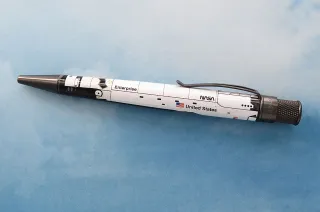Space travel can seriously change your brain | Space
Published by Reblogs - Credits in Posts,
Space travel can seriously change your brain
It turns out that spending time in space can change your brain (and you might have to be spun around to prevent it).
Researchers have been exploring how spaceflight can affect human physiology and human health for as long as we have been working to launch people to space. For example, the groundbreaking Twins Study uncovered a multitude of ways that space changes our bodies — even our gene expression!
But one new study suggests that spaceflight could affect the human brain in strange and unusual ways, which could impair astronaut eyesight and last for a long time.
Related: The Human Body in Space: 6 Weird Facts
Since the days of the shuttle program to today, astronauts have reported issues with vision after traveling to space. Medical evaluations on Earth have revealed that astronauts' optic nerves swell and some experience retinal hemorrhage and other structural changes to their eyes.
Scientists suspect that these vision issues are caused by increased "intracranial pressure," or pressure in the head, during spaceflight. In a new study led by Dr. Larry Kramer, a radiologist at the University of Texas Health Science Center at Houston, researchers have found evidence that this pressure does, in fact, increase in microgravity.
In this study, the team performed brain MRI (magnetic resonance imaging, a technique that uses specialized scanners to image parts of the body using magnetic fields) on 11 astronauts (10 men and one woman) both before and after they traveled to space and for up to a year after their return. These MRI images showed that, with long-duration exposure to microgravity, the brain swells and cerebrospinal fluid, which surrounds the brain and spinal cord, increases in volume.
These findings support the theory that spaceflight increases pressure in the head which researchers think could be tied to issues with astronaut vision, Kramer told Space.com.
Additionally, Kramer and his colleagues found that the pituitary gland, also changes with exposure to microgravity, Kramer said. They found that the gland became compressed, it changed in height and shape which, as Kramer said, this is a sign of increased pressure in the head.
Related: Astronauts Use 'Smart Shirt' and Ultrasounds to Monitor Health
The researchers also found that these effects, the swelling of the brain alongside the compressing pituitary gland and the pressure in the head, was still present a year after the astronauts returned from space. That duration suggests that these effects could be long-lasting, Kramer said. However, further study is needed to evaluate exactly how microgravity affects the brain over an astronaut's lifetime and how this might vary between people, Kramer said.
Scientists have a number of theories about why the brain swells in space, but what Kramer called "one of the most compelling," is that without gravity, the fluids in our body that usually circulate evenly travel up toward the head and away from the feet, he said. "The blood that normally pools in the extremities redistributes toward the head," he said. "It's not something that we normally experience on Earth unless you're sort of standing on your hands."
Researchers are also working to develop what spaceflight experts call "countermeasures," or techniques that could be used to reduce these negative effects.
To test countermeasures, research subjects are put on bed rest with their heads tilted downward to simulate the fluid shift scientists believe happens in microgravity. In this position, researchers have found that the optic nerve swells and seen other physical effects that are also seen in spaceflight. "If we can prevent those [effects] in the bed-rest studies, then potentially we can prevent those in microgravity," Kramer said.
One of the countermeasures that researchers are experimenting with is reminiscent of the revolving space station in the sci-fi film "2001: A Space Odyssey," Kramer said. The countermeasure would "spin an astronaut around for a certain portion of the day, just moving the blood through the body and back towards the legs," like an artificial gravity, Kramer said.
Another countermeasure scientists think may help is a specialized suit for the feet and legs that would help to maintain their fluid levels.
The work is described in a paper published today (April 14) in the journal the Radiological Society of North America.
- Astronaut Scott Kelly is home from a 1-year mission, but the science continues
- 'Infinite Wonder': Scott Kelly documents yearlong space mission
- Space Stress: How 1-year mission is studying astronaut health
Follow Chelsea Gohd on Twitter @chelsea_gohd. Follow us on Twitter @Spacedotcom and on Facebook.
Join our Space Forums to keep talking space on the latest missions, night sky and more! And if you have a news tip, correction or comment, let us know at: community@space.com.
Chelsea Gohd joined Space.com as an intern in the summer of 2018 and returned as a Staff Writer in 2019. After receiving a B.S. in Public Health, she worked as a science communicator at the American Museum of Natural History. Chelsea has written for publications including Scientific American, Discover Magazine Blog, Astronomy Magazine, Live Science, All That is Interesting, AMNH Microbe Mondays blog, The Daily Targum and Roaring Earth. When not writing, reading or following the latest space and science discoveries, Chelsea is writing music, singing, playing guitar and performing with her band Foxanne (@foxannemusic). You can follow her on Twitter @chelsea_gohd.
-
newtons_lawsYet more evidence that a long duration manned mission to Mars really needs to be investigating and testing artificial gravity designs for the living quarters during the trip. https://www.space.com/24904-gravity-for-mars-missions.htmlReply
-
Torbjorn LarssonSo space tourists will have swollen heads?Read More Reply
The study is of a limited material and almost exclusively male, and show modest changes - 2 % mean swelling of brain and its fluid and 13 % increased flow velocities (which may be beneficial) which return to baseline after flight. Uncertainty is low, p < 0.001 on everything that was... -
kristi276Space travel can seriously alter one's brain, or the lack of gravity can really mess with one's mind. The mean population for the study is relatively small because the population is small; as compared to the overall general population. We don't have hundreds of thousands of people traversing through near orbit, we just have a hand full of astronauts...Read More Reply
-
ArmomayMost common are adjustment reactions to the novelty of being in space, with symptoms generally including transient anxiety or depression. Psychosomatic reactions also have occurred, where anxiety and other emotional states are experienced physically as somatic symptoms.Reply
-
ArmomayMost common are adjustment reactions to the novelty of being in space, with symptoms generally including transient anxiety or depression. Psychosomatic reactions also have occurred, where anxiety and other emotional states are experienced physically as somatic symptoms. From my point of view, depression and anxiety is a very serious health problem. I had to encounter such a problem... I...Read More Reply
-
The SageI sure hope we do fix this issue since our brains are literally the key to space travel! First, intelligent people aren't the only thing we need to solve our problems we need genius. Second, intelligence is basically like a really good interpreter and it can make some toys but linking things together isn't the strong point for intelligent...Read More Reply
Most Popular
By Andrew Jonesabout 9 hours ago
Get breaking space news and the latest updates on rocket launches, skywatching events and more!
Space is part of Future US Inc, an international media group and leading digital publisher. Visit our corporate site.
© Future US, Inc. 11 West 42nd Street, 15th Floor, New York, NY 10036.



